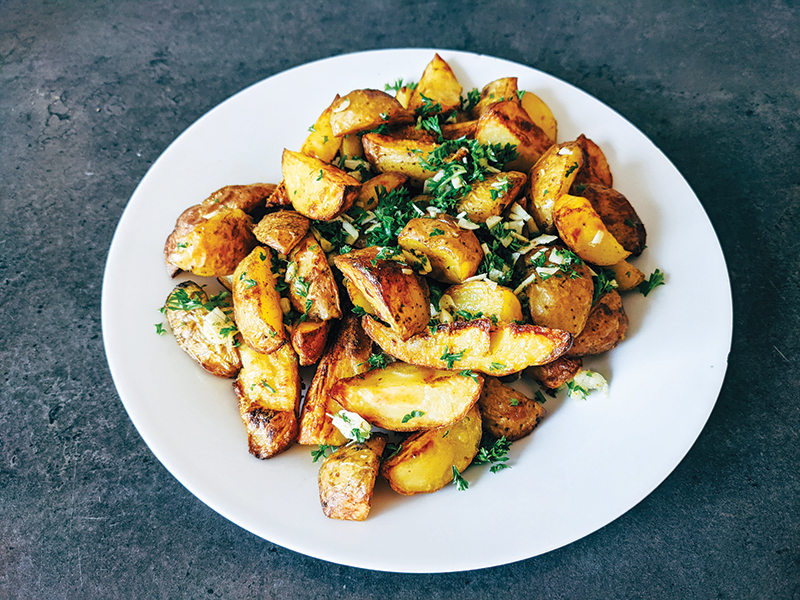
NPC working to ensure potatoes’ seat at nutrition policy table
Here are two facts that should be obvious to anyone writing public policy. First: Potatoes are nutritional powerhouses, offering both affordability and flexibility as America’s favorite vegetable. Second: Potatoes are, indeed, a vegetable.
You might wonder why the National Potato Council needs to spend its time telling policymakers things they should already know. Unfortunately, these obvious messages need to be communicated to counter the voices of nutrition activists who are working to undermine the nutritional benefits of potatoes in favor of other foods they deem “healthier” for Americans.

While it might be only 2023, the 2025 Dietary Guidelines for Americans (DGAs) process is well underway. Updated every five years to reflect the latest nutritional science, the DGAs provide Americans advice on what to eat and drink to meet their nutrient needs, promote health and prevent disease.
Additionally, the guidelines provide the foundation upon which all federal nutrition policies and feeding programs are based.
The recommendations found in each iteration of the DGAs matters greatly for consumer-facing industries like ours, which is why NPC works to ensure the U.S. potato community has a seat at the table in writing this important document.
In September, NPC provided testimony to the Dietary Guidelines Advisory Committee, which is charged with reviewing the current scientific evidence on nutrition and then issuing a set of recommendations to USDA and the Department of Health and Human Services, which writes the final DGA.
In our testimony, we argued that — rather than picking vegetable winners and losers — the Advisory Committee should focus on strategies to increase overall vegetable consumption and maintain recommendations for servings of what are often referred to as starchy vegetables.

Americans do not eat enough vegetables, and potatoes are key to addressing this gap. Potatoes are a versatile, affordable and popular nutrient-dense choice across socioeconomic groups and cultures. Prepared in any form, potatoes provide essential, under-consumed nutrients such as potassium and fiber.
Potatoes also play a key role in federal feeding programs such as National School Lunch and School Breakfast Programs. Here, potatoes serve as a “springboard vegetable,” which introduces children to other types of less-consumed vegetables, increases participation and decreases food waste.
Second, we needed to be sure the committee understood that potatoes are a vegetable.
We have heard that the committee is considering changes to food groups within U.S. dietary patterns, including the interchangeability of starchy vegetables and grains.
While NPC is sensitive to individual needs and cultures, we urged the committee to recognize that a potato is not a grain.
Starchy vegetables and grains are two vastly different food groups that play distinctly different roles in contributing nutrients to the diet. Unlike grains, white potatoes are a strong contributor of potassium, calcium, vitamin C, vitamin B6 and fiber. Research shows that diets high in vegetable consumption, including potatoes, promote healthy outcomes overall.
The suggestion to reclassify potatoes as a non-vegetable is not grounded in any scientific metric. Instead, it apparently involves arbitrary preferences of meal substitution. This unsupported notion, if acted upon, would confuse consumers, resulting in nutrient gaps and decreased vegetable consumption. We asked the committee to avoid this chaotic outcome and continue to acknowledge the fact that potatoes are a vegetable.
The NPC remains actively involved in federal policies that could impact the ability of our members to grow and deliver nutritious food to U.S. dinner tables. As one of the many diverse stakeholders involved in the DGA process, NPC has provided the committee with accurate information about the nutritional value of America’s most widely grown and consumed vegetable.
America’s potato growers are due an equal seat at the DGA writing table. We will continue to work to ensure that all scientifically sound information — including reinforcing that potatoes are a vegetable — is considered during the 2025 DGA process.














